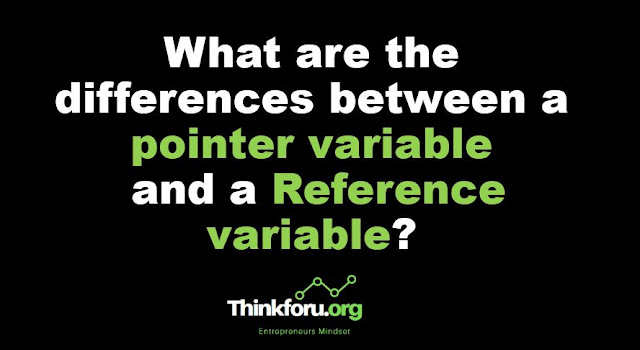What are the Differences between a [ Pointer variable and a Reference variable ]
What are the differences between a pointer variable and a reference variable?
 |
| Cover Image of What are the differences between a pointer variable and a reference variable? |
A pointer variable and a reference variable are both used to indirectly access other variables in memory. However, there are some differences between the two:
Syntax: A pointer is declared using an asterisk (*) before the variable name, while a reference is declared using an ampersand (&) before the variable name.
Nullability: A pointer variable can be null, which means it doesn't point to any memory address, while a reference variable must always refer to a valid object.
Memory Access: A pointer variable stores the memory address of the variable it points to, and you can use the dereferencing operator (*) to access the value stored in the memory location. A reference variable, on the other hand, is an alias to the variable it refers to, and you can access the value directly using the reference variable name.
Re-assignment: A pointer variable can be reassigned to point to a different memory address, while a reference variable cannot be reassigned to refer to a different object after it has been initialized.
Initialization: A pointer variable can be declared without being initialized, while a reference variable must be initialized at the time of declaration.